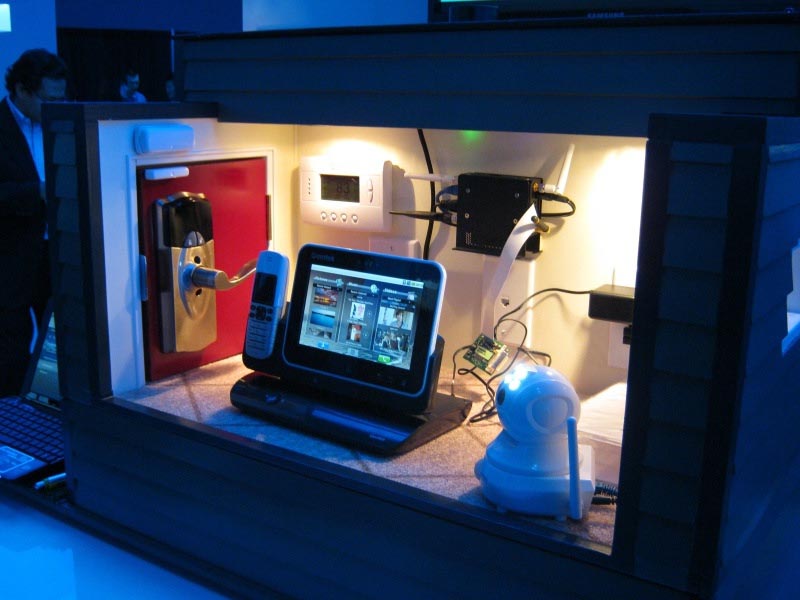 Internet-connected smart home devices have wide appeal with today’s buyers — particularly younger buyers who are used to living with their smartphones. And some insurance carriers are offering discounts to owners who wire their home with smart amenities.
Internet-connected smart home devices have wide appeal with today’s buyers — particularly younger buyers who are used to living with their smartphones. And some insurance carriers are offering discounts to owners who wire their home with smart amenities.
That’s according to our colleagues at Pacific Union joint-venture The Mark Company, who offered their thoughts on smart home technology facts and trends. About half of new condominium developments in San Francisco offer some degree of smart technology, and these features are most often included in the sales price. Since many luxury buildings already have high-end finishes, it’s common for smart heating and cooling systems to be built into the unit when the buyer moves in.
One such luxury building in San Francisco’s South Beach neighborhood, 181 Fremont Residences, will offer buyers home automation systems to remotely control lights, shades, heating and cooling systems, and entertainment systems. According to The Mark Company Sales Manager Dilan Urun, buyers see value in such technologies mostly for the conveniences they offer, but also because they indicate that their home is high-end.
Buyers who purchase or live in a home without built-in smart features and want to upgrade will incur variable costs depending on the technologies they choose. A basic Nest thermostat costs as little as $250, while all-inclusive home-automation packages usually cost between $1,000 and $2,000, although that figure will vary based on the type of home security system chosen. Costs will be higher to upgrade an older home, as these properties likely have components that cannot communicate with smart devices.
While recent research suggests that buyers are willing to pay more for a home with smart features, the technology can also save them money on insurance premiums. According to a recent MIT Technology Review article, insurers such us State Farm, USAA, Liberty Mutual, and American Family are incentivizing owners to add smart devices to their homes. For instance, Liberty Mutual will send customers a Nest smoke detector free of charge, then cut fire insurance premiums. American Family offers discounts to owners who install the Ring Video Doorbell, which allows owners to view who is at their door from a smartphone or a computer.
Smart home technologies may be fairly cutting-edge right now, but in the next few years, higher-end buyers will come to expect them and they will become standard new-home features, much like stainless-steel appliances. A Houzz survey found that the majority of owners who have upgraded their homes with smart technologies are very satisfied with the results and that most spent about $1,500 for smart security or entertainment systems.
For a roundup of the top smart home devices of 2016, check out this recent CNET feature.

